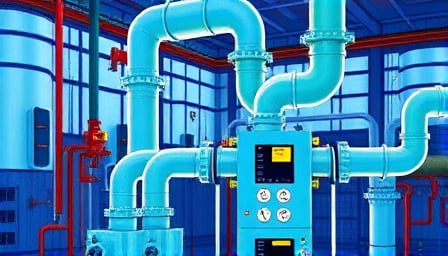Iwatani Corp and the Booming Hydrogen Generation Market
In a world increasingly focused on sustainability and cleaner energy solutions, the hydrogen generation market is poised for significant growth. According to a recent report by Grand View Research, Inc., the global hydrogen generation market is projected to reach a staggering USD 317.39 billion by 2030, growing at a compound annual growth rate (CAGR) of 9.3% from 2024 to 2030. This growth is driven by a robust demand for cleaner fuels, the construction of energy-saving hydrogen stations, and the desulfurization of petroleum products.
Iwatani Corp’s Strategic Positioning
Iwatani Corp, a prominent trading company based in Osaka, Japan, is well-positioned to capitalize on this burgeoning market. Specializing in supplying gases for both industrial and household use, Iwatani has diversified its portfolio to include fuels, consumer products, industrial materials, minerals, construction, agriculture, and medical products. Notably, in partnership with Mitsubishi Heavy Industries, Iwatani produces liquid hydrogen, aligning itself with the growing hydrogen economy.
The company’s strategic focus on hydrogen is further underscored by its listing on the Tokyo Stock Exchange, where it recently closed at a price of 1365 JPY on April 27, 2025. Despite a significant drop from its 52-week high of 2637.5 JPY on July 8, 2024, Iwatani’s market capitalization stands at 311,430,000,000 JPY, reflecting its substantial presence in the energy sector.
Industry Trends and Technological Advancements
The hydrogen generation market’s growth is fueled by several key factors. The construction of energy-saving hydrogen stations and the desulfurization of petroleum products are critical components driving this expansion. Additionally, the emphasis on distributed power and utility projects has significantly fueled industry penetration. As global electricity demand is expected to rise by nearly two-thirds of the current demand during the forecast period, stakeholders are witnessing increased traction for sustainability solutions in power manufacturing, generation, and transportation.
In terms of technology, advancements such as steam methane reforming are playing a pivotal role in the hydrogen generation process. These technological innovations are essential for meeting the rising demand for cleaner fuel alternatives and supporting the transition to a more sustainable energy landscape.
Toyota’s Commitment to a Hydrogen Society
In a related development, Toyota Motor North America has reaffirmed its commitment to a Hydrogen Society at the 2025 Advanced Clean Transportation Expo. Toyota plans to introduce hydrogen-powered fuel cell electric Class 8 heavy-duty trucks to its Southern California-based Toyota North American Parts Center fleet. This initiative is part of a broader strategy to reduce emissions and promote cleaner transportation solutions.
Toyota’s investments in hydrogen infrastructure aim to benefit both trucking fleets and consumers. Additionally, the North American debut of Toyota’s more efficient and powerful Gen 3 fuel cell system highlights the company’s dedication to advancing hydrogen technology and supporting the transition to a hydrogen-based economy.
Conclusion
As the hydrogen generation market continues to expand, companies like Iwatani Corp and Toyota are at the forefront of this transformative shift towards cleaner energy solutions. With strategic investments and technological advancements, these companies are well-positioned to lead the charge in the hydrogen economy, contributing to a more sustainable and environmentally friendly future.
